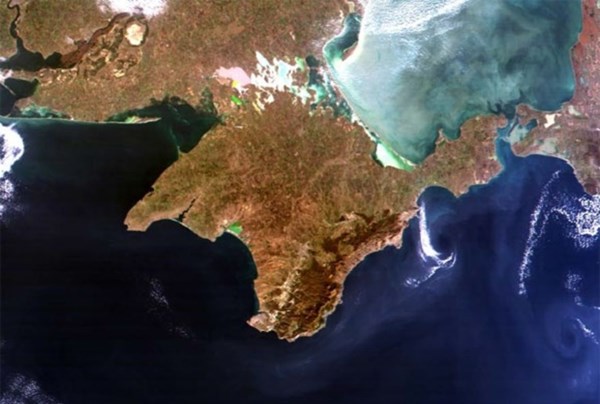Ukrainian official: Crimea drying out completely
Crimea, which used to live off water from mainland Ukraine, is completely drying out, Deputy Minister for the Occupied Territories Yuriy Hrymchak said in a comment for Obozrevatel news outlet.
“We monitor using satellites that photograph Crimean territory. Today, more than 70% of the previously normal vegetation is drying up. Put in understandable language, steppe Crimea, which lived off water which came from Ukraine, is drying up completely, it’s true,” Hrymchak said.
When asked whether Russia had asked Ukraine to restore the water supply to the peninsula, the deputy minister answered in the negative. He pointed out, however, that according to international conventions, it is Russia’s responsibility to supply the annexed territories with water, including drinking water.
According to Hrymchak, there are several conditions which must be met for Ukraine to consent to renewing the water supply to the peninsula.
“The necessary conditions are the withdrawal of forces and the liberation of Crimea. And also, compensation for losses,” he said.
With respect to the possibility of the Russian government solving the drought problem itself, Hrymchak gave his assurance that this would be almost impossible due to the cost of these methods.
“Yes, water can be carried on airships. Theoretically it is possible to use a desalination system, but it is very expensive, since both the system itself and its maintenance are very costly. As far as I know, they are not even considering such an option today,” he explained.
The deputy minister also predicted how many years would be needed to restore Crimea after the drought.
“Crimea will return to its natural state. In 1954, when Crimea was transferred to Ukraine, roughly 10 years were needed to flush the mineralization of the ground and to use this land for agriculture. I think that now it will take at least 10 years to bring back drinking water completely,” Hrymchak estimated.
Four regions of Crimea have been declared emergency areas due to the drought. Heat and lack of precipitation have led to the loss of 18,000 hectares of crops, causing damage estimated at 164 million rubles. The regional farmers have planned to harvest 800,000 tons of grain in 2018, only half as much as in 2017.
